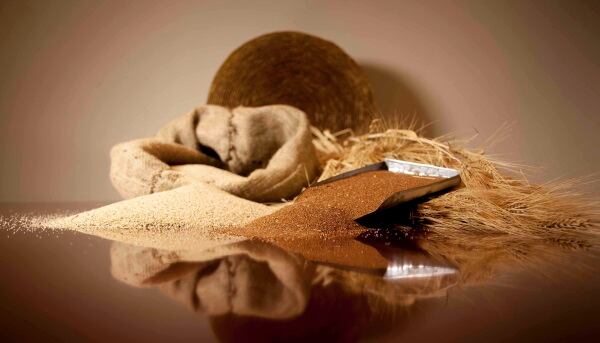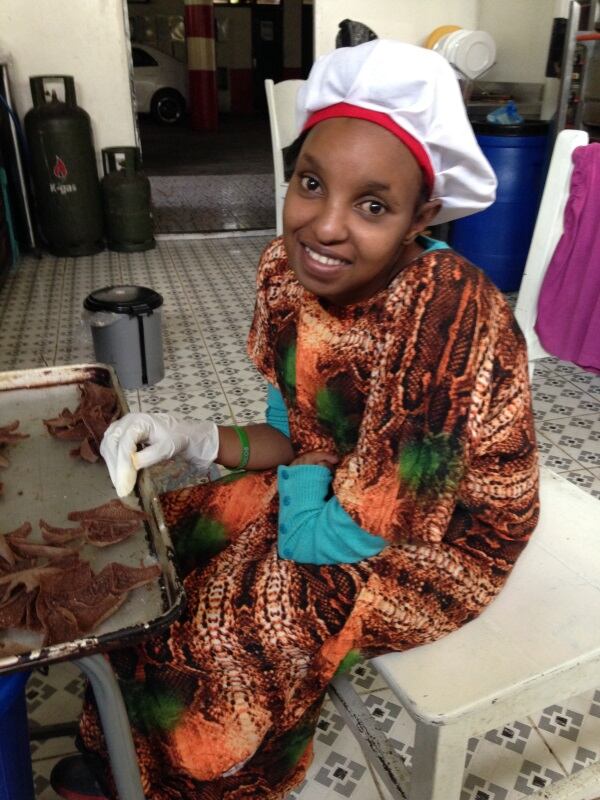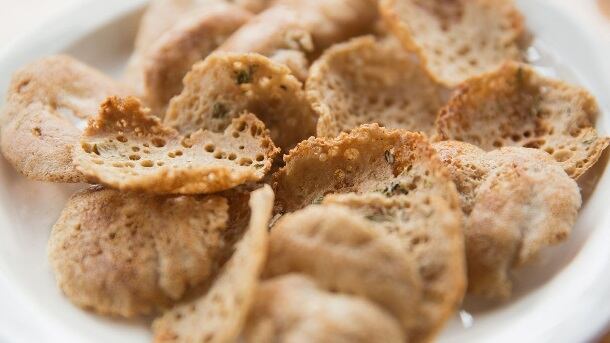The company hopes the business will create job opportunities for local women and improve food security.
The crunchy snack, made from a teff-based fermented pancake called injera (a national dish in Ethiopia) isn't a cracker and it's not a chip, it’s just, well, Dirkosh.
According to Bowden, while Dirkosh refers to injera that’s baked in the sun, she experimented with the recipe and came up with something entirely new.

Why teff?
“Teff is awesome,” enthuses Bowden.
It’s the smallest grain in the world (no bigger than the eye of a needle) and comes from lovegrass.
It’s gluten-free, non-GMO, organic, packed with essential amino acids, and high in iron and calcium.
One serving of teff contains 7 g protein; 4 g dietary fiber; and 25% of daily the recommended daily intake of magnesium, 20% of iron and 10% of calcium, vitamin B6, and zinc.

“For the sake of tradition – and because it’s a really fun word – we still call it Dirkosh,” she said.
Sun baked
“Typically, injera is fermented for 3-4 days before it’s cooked creating a mild sour taste. Even once it's sun baked and turned into Dirkosh, it retains its bitter flavor,” said Bowden.
The entrepreneur set out to formulate a recipe that reduced the fermenting period to create a more subtle flavor that would appeal to more consumers.
Dirkosh Crunch chips are then baked on hot clay slabs called metads, without using oil.
“I think the coolest part about our chips is their minimalism. Besides teff grain, we just add spices. No oil. No chemicals. No preservatives. Nothing you wouldn’t find in a typical Ethiopian home,” said Bowden.
Dirkosh Crunch is available in four flavors, including Afar Salt (pinch of volcano salt), Seed Lovers (sesame and ground flax seed), Garlic Heaven and Mitmita Fire (a fiery spice).
All ingredients are sourced locally: even the volcano salt, which comes from the foothills of the Danikil Depression on the Horn of Africa, considered the largest salt reserve in the world.
Crowdfunding campaign
Bowden and Kibrom launched a crowdfunding campaign at the end of 2015 to establish Eat Dirkosh and then spent several months developing the chips before rolling them out onto the Ethiopian market in September 2016.
“We are now making plans to export to the UK next year,” said Bowden, noting the start-up is planning to exhibit at VeganLive to be held in London in February 2018.
Keeping it women

Eat Dirkosh, based in Addis Ababa, has a workforce of six women, but will obviously scale up to meet export demand. However, noted Bowden, it will keep its workforce 100% women.
“We believe the best way to transform our community is to strengthen the skills, education, opportunities and income of females, especially those more at-risk,” she said.
“All we’re doing, though, is realizing and believing in their potential, and creating an equal partnership where we mutually support each other’s goals.
“However, I think our biggest social impact could simply be providing an excellent product that’s a regular in your shopping basket,” she said.
Bowden, who has a Master’s in social work, relocated to Ethiopia from Fort Wayne, Indiana, after a three-month volunteering stint during which time she fell in love with the culture.
“The hardest part of transitioning to this lifestyle was that I missed eating chips. Creating Dirkosh was my solution.”
The long and winding road

She notes there are numerous challenges in creating a start-up snack company in Ethiopia.
First is a lack of resources, meaning equipment and packaginghas to be imported.
Second is the inconsistent power, water and internet connection.
Also, progress has been slower than expected because the business partners have had to spend time and resources on instructing their workforce on recipes and even training farmers on good farming practices and aflatoxin prevention.
“My biggest challenge right now is finding an oven. We need a small commercial tunnel oven, but could settle for an electric rotary oven if it met our volume requirements,” said Bowden.
Ideally, Eat Dirkosh is hoping to make contact with a bakery or manufacturer who wants to sell a disused – but still in good condition – oven, or even an oven manufacturer that wants to use this as a CSR (corporate social responsibility) opportunity.
Ethiopia’s growing love of crisps
While still in its infancy, the snacking culture in Ethiopia is on the rise.
“Generally, other than biscuits or chocolate, most Ethiopians don’t eat between meals. However, I’ve noticed an increase in crisp eating. Today they’re in every store, especially the Pringles brand,” said Bowden.
Looking forward, Bowden said the company is focussing on putting together funding for export, acquiring the new oven and making it to the UK.
“In the future, we want to export to other European countries and the US and Canada, but for now London is our big focus,” she said.

